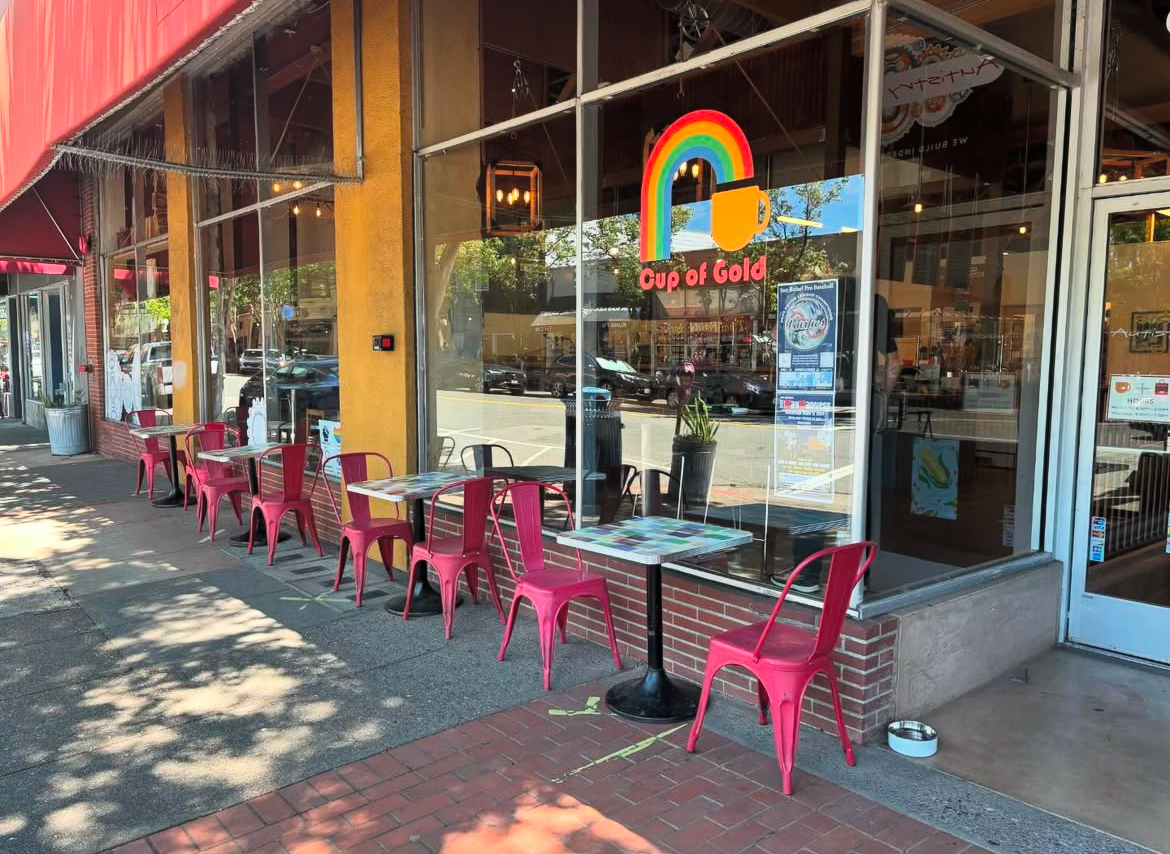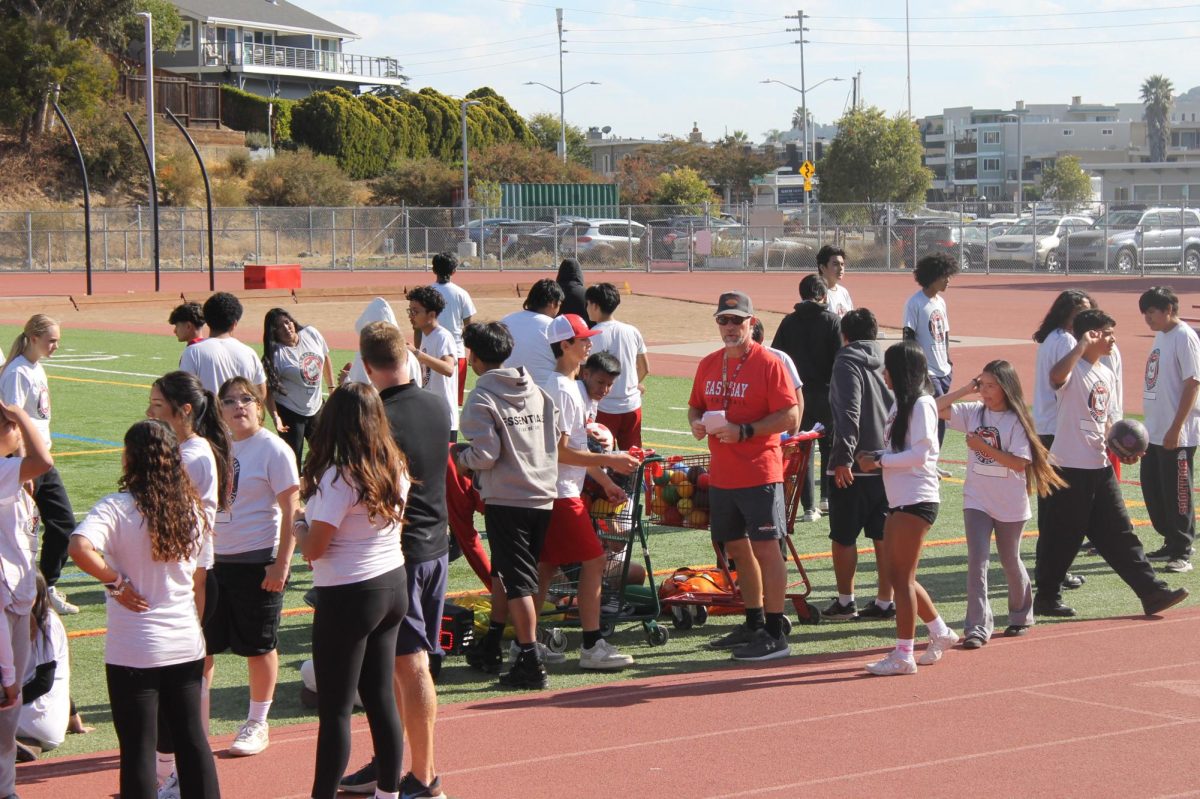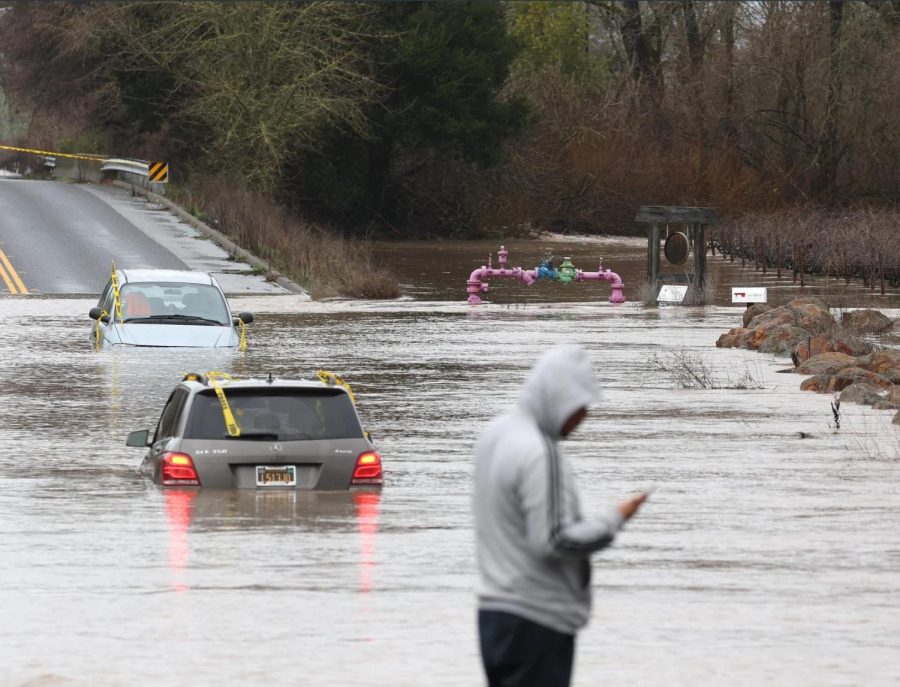Climate Change is Getting Worse, but High Schools Can Help
February 8, 2023
Climate change is like an out of control fire, it only gets worse the longer it’s left alone. For so long, our society has fueled the deterioration of the planet, whether it be by accident or not. Now, people all across the world are feeling the effects.
Recently, climate change has earned its title in California. The series of storms that hit in January of 2023 caused the wettest three weeks in the Bay Area in 161 years, bringing flooding, mudslides, power outages, and more. San Francisco got a landmark 17 inches of rain instead of its average of 3.1 inches. With California’s increasingly severe drought, the land isn’t able to handle so much water, and it’s harming our communities.
“My power was out for three days,” says Tivon Danek, an SRHS sophomore. “Everything in my fridge spoiled,” he told me. “I think it’ll keep happening… it’s annoying.”
This rainfall and flooding has caused over $1 billion in damages, and has taken at least 17 casualties. In 2022 and 2023, we have seen an incredible increase in the severity of weather events. In California, we’ve experienced extreme heat waves, more aggressive wildfires, severe drought, extreme rain, flooding, and more. This is undoubtedly connected to the changing of our climate.
These huge and irregular storms in California are caused by the gradual warming of our oceans and atmosphere. With warmer oceans, more water evaporates. Warmer air is able to hold more of this evaporated water, meaning it can dump more of it over longer periods.
“Scientists have high confidence that global temperatures will continue to rise for many decades, mainly due to greenhouse gasses produced by human activities,” says NASA’s official climate page. If the temperatures continue to rise, weather events will continue to get more severe, and the Earth will keep deteriorating.
“That’s our existential threat, humanity could wipe itself out if we don’t do something about it,“ said SRHS AP Environmental Science teacher Mr. Morales. He also stated that while his class includes many subjects of environmental education, it all connects back to climate change due to its overarching effect on each area of our planet.
Fortunately for us, the intensity of climate change is almost completely based on our carbon dioxide emissions as humans. The average American in 2022 left a carbon footprint of about 14 tons of carbon dioxide, a number that has actually been slowly declining over the last 50 years. If we can maintain this decrease, things may improve.
This means that if we try, we are capable of making the consequences less drastic, and over time, the effects of climate change may slowly dissipate. Although it may take hundreds to thousands of years to revert the damages, if we don’t focus now, things are going to get worse, and remain that way for much longer.
With such a sprawling and threatening problem, the biggest and most important step toward change is understanding and accepting the issue along with its impacts. NASA has already declared that “climate change is not a future problem.” It’s been getting worse for years, and our generation needs to learn about the problem and address it. Having basic knowledge about climate change can be enough to start making change, no matter how small.
As the world barrels towards a nearly irreversible state, one of the best ways to slow this down is to educate our population, especially young people and the upcoming generations who will be in powerful positions in the future.
When dealing with an issue like this, it’s important to state the obvious. So many people across the world have moments of carelessness, such as littering or wasting food. Everyone has experienced these moments, some people more often than others. But if we can’t change our thinking as individuals, we will never get around a problem of global scale. This issue requires worldwide cooperation, but it starts with each individual person. That is why we need climate education.
“It impacts our daily lives right now, so we can see the impacts that climate change is having on the daily,” said Mr. Morales. “It’s really important that we know what’s going on in the world around us.”
A society armed with knowledge will make smarter decisions according to their values, morals, and concerns. This means that each educated person may make small, beneficial changes. Many isolated cases of people behaving differently, like recycling or composting more, can add up to make a big difference.
Although individual change is necessary, many people don’t know that just 100 companies emit 71% of global carbon emissions. If we want substantial change to be made, there must be strong and constant pressure placed on these corporations by the public. An extensive understanding of climate change paired with the fiery attitude of the youth in America will play a big role in dethroning these massive companies who exchange damage to our environment for their profit.
A study by Yale University’s Climate Change Communication program shows that a great majority of Americans in all areas of the country already support teaching children about the “causes, consequences, and potential solutions to global warming.”
After seeing the results of an informal survey of 35 SRHS students who were randomly approached throughout a day of school, I can also confirm that this is true for our student body, with over 90% saying they would be happy to take at least one mandatory unit of climate change education during a science course. Although the school does have basic climate education sprinkled throughout our science education, many students would be enthusiastic to spend a full unit learning about our effects on the environment and possible future solutions.
Education is key to initially changing peoples’ feelings and behaviors. “Education empowers all people, but especially motivates the young to take action,” states an article published on the United Nations website in December 2018. The UN also encourages learning about climate change in the classroom so children can gain climate literacy and understand the changes their world is going through from a young age.
With the world’s top agencies and organizations encouraging the idea, students willing to learn, and Americans hoping for change, it’s clear that education is one of the most important steps towards getting out of this global crisis. That being said, students should consider taking classes like APES if they are interested in this issue, and schools need to consider adding a more mandatory curriculum to educate our generation.






































